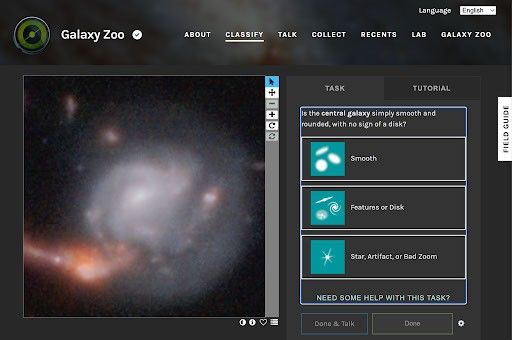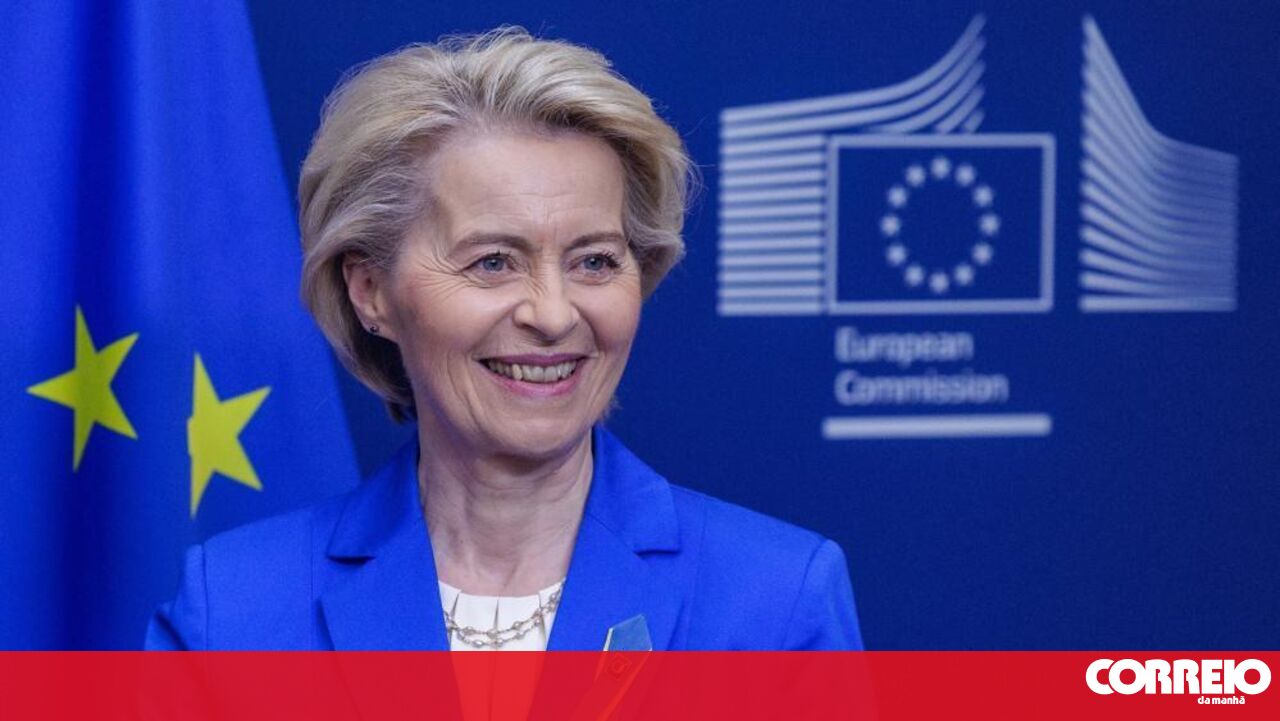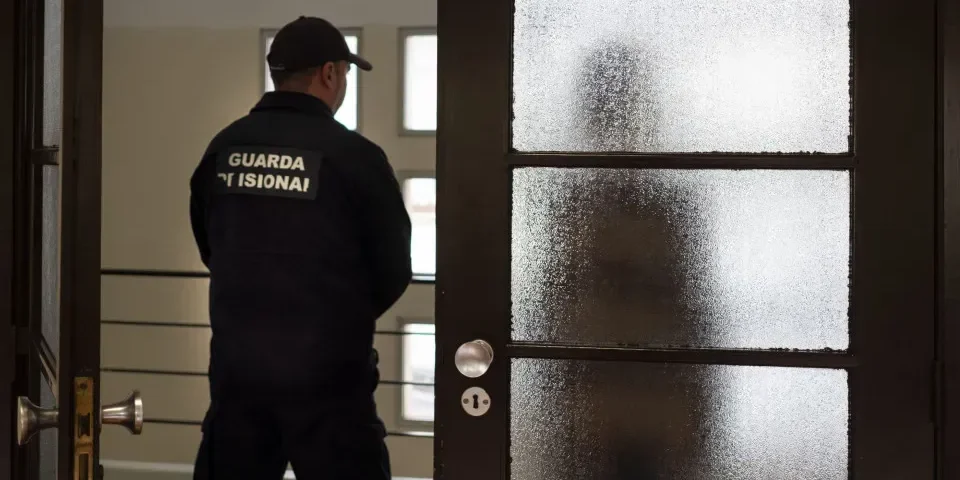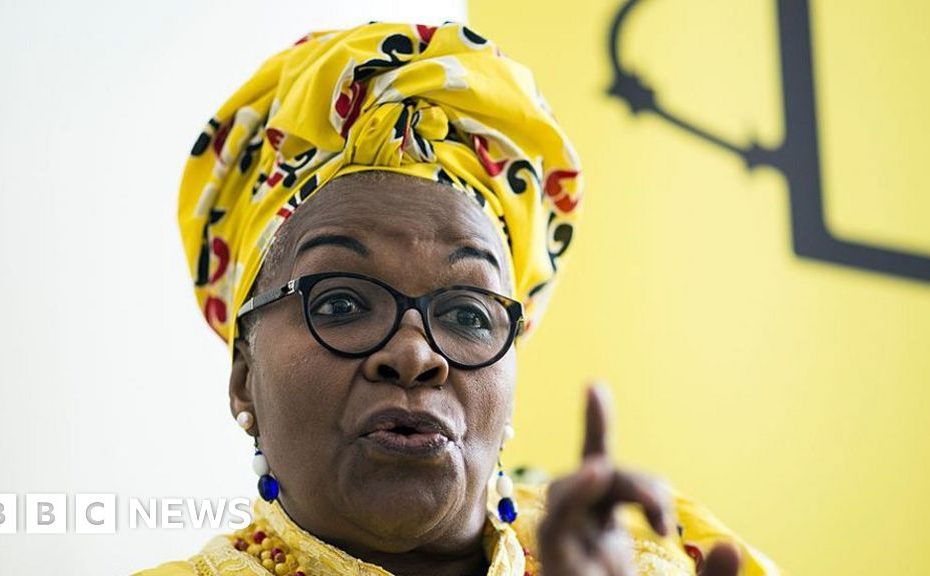Cameroonian lawyer risks everything to defend LGBT rights
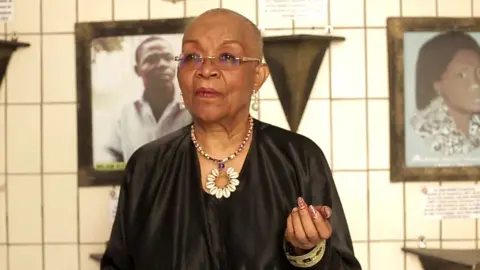 British Broadcasting Corporation
British Broadcasting CorporationDespite being defamed, threatened and humiliated in public, veteran Cameroonian lawyer Alice Nkom remains determined to defend the rights of gays and lesbians in her country.
The human rights NGO Redhac she ran was recently suspended by the government and she is due to be investigated to answer charges of money laundering and financing of terrorist groups – which she denies.
The 80-year-old says authorities are hindering her work and sees her as a legal advocate for the LGBT community.
“I will always defend gay people because they risk their freedom every day and they are imprisoned like dogs,” she told the BBC in a firm tone in her office in the city of Douala.
“My job is to protect people. I don't understand why I would say I'm protecting everyone except gay people.”
Dressed in a black robe and speaking in measured tones, Ms Nkom delivered her stark message, which reflected years of thoughtful legal debate.
Under the country's criminal code, both men and women found guilty of homosexuality can be jailed for up to five years and fined. Members of the LGBT community also face ostracism from their families and wider society.
As a result, Ms Nkom is seen as a surrogate parent for some people in her country who have come out to their families about their sexual orientation.
The legal expert has children herself, but for more than two decades she has dedicated herself to defending those accused of homosexuality, and hundreds, if not thousands, of people regard her as their protector.
“She was like our father and mother. When our families abandoned us, she was the mother we found,” said Sebastian (pseudonym), an LGBT activist.
Ms. Nkom is committed to the Universal Declaration of Human Rights contained in Cameroon’s constitution and believes that freedom from discrimination based on sexual orientation should be considered a fundamental right that supersedes criminal law.
“You shouldn’t incarcerate basic rights, you shouldn’t suppress them — you should protect them,” she said.
The fight left Ms Nkom in a difficult position.
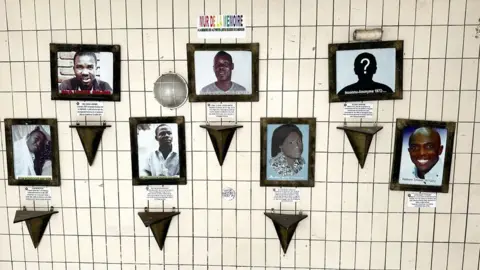
She said she was repeatedly physically threatened on the street and revealed that when she first entered this legal field, she hired bodyguards to help protect her.
But her journey to becoming one of Cameroon’s most outspoken legal figures began long before that.
In 1969, at the age of 24, she became the country's first black female lawyer after studying in France (a former colonial power) and Cameroon.
She said her then-boyfriend, who later became her husband, encouraged her to continue her education.
Her early legal work involved representing the less affluent and disadvantaged, but a chance encounter in 2003 led her to become involved in the fight to decriminalize homosexuality.
When she was at the Douala prosecutor's office, she saw a group of young men being handcuffed in pairs who didn't have the courage to look up.
“When I looked at the court records, I realized they were being prosecuted for being gay,” she said.
“Try homosexuality”
This offended her sense of human rights, and she knew very well that sexual minorities should be included in the rights protected by the constitution.
“I am determined to work to ensure that this fundamental right to freedom is respected,” Ms Nkom added.
She founded the Association for the Defense of Homosexuality (Adefho) in 2003.
Since then, she has been involved in dozens of cases. One of the most high-profile incidents in recent years was her defense of transgender celebrity Shakiro and friend Patricia in 2021.
The pair were arrested while eating at a restaurant and later charged with “attempted homosexuality”.
They were sentenced to five years in prison for violating criminal laws and obstructing public morals.
“This is a hammer blow. This is the maximum period stipulated in the law. The message is clear: homosexuals have no place in Cameroon,” Ms Nkom said at the time.
Shakiro and Patricia were later released pending appeal and fled the country.
Since then, the situation for LGBT people has not improved. LGBT campaigner Sebastian, who runs a charity supporting families with gay children, feels the situation has gotten worse recently.
Last year, a song based on the popular Mbole rhythm was released, with a title and lyrics that encouraged people to target and kill gay people. It's still widely shared and played regularly in the most fashionable venues in the country's major cities.
“People are attacking us because of this song that glorifies crime,” Sebastian said.
LGBT people must hide their gender identity, but “some people set traps to approach us, attack us or report us to the police,” he said.
 Brenda Bea/Instagram
Brenda Bea/InstagramMs Nkom said when President Paul Biya's daughter Brenda Biya came out last year as a lesbian, she thought it might help change the law.
Ms Biya spends most of her time outside Cameroon, She reportedly hopes her openness will change things at home.
Ms Nkom sensed an opportunity. “I used the Brenda case as a precedent. Now I have a case that I can use to challenge the president,” she said.
The lawyer also asked Ms Biya to do more for the cause of Cameroon's LGBT community.
“Brenda has not responded to me since I made my statement in the media, but I know she will.”
For now, however, she will continue to practice law.
She views recent attempts to limit her efforts as just another obstacle—certainly not enough to stop her efforts. Let her stop the fight she has been fighting since 2003.
You may also be interested in:
 Getty Images/BBC
Getty Images/BBC